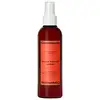What's inside
What's inside
 Key Ingredients
Key Ingredients

No key ingredients
 Benefits
Benefits

 Concerns
Concerns

 Ingredients Side-by-side
Ingredients Side-by-side

Cocos Nucifera Oil
MaskingCetyl Alcohol
EmollientOlea Europaea Fruit Oil
MaskingCucurbita Pepo Seed Oil
EmollientPinus Elliottii Extract
Pinus Banksiana Bark Extract
Skin ConditioningChamomilla Recutita Flower Extract
MaskingUrtica Dioica Leaf Extract
Skin ConditioningTaraxacum Officinale Leaf Extract
Skin ConditioningTrifolium Pratense Flower Extract
AstringentAcetic Acid
BufferingMagnesium Chloride
Cyamopsis Tetragonoloba Gum
Emulsion StabilisingLathyrus Odoratus Flower Extract
Skin ConditioningCocos Nucifera Oil, Cetyl Alcohol, Olea Europaea Fruit Oil, Cucurbita Pepo Seed Oil, Pinus Elliottii Extract, Pinus Banksiana Bark Extract, Chamomilla Recutita Flower Extract, Urtica Dioica Leaf Extract, Taraxacum Officinale Leaf Extract, Trifolium Pratense Flower Extract, Acetic Acid, Magnesium Chloride, Cyamopsis Tetragonoloba Gum, Lathyrus Odoratus Flower Extract
Water
Skin ConditioningGlyceryl Stearate
EmollientGlycerin
HumectantStearyl Alcohol
EmollientDiheptyl Succinate
EmollientBrassicamidopropyl Dimethylamine
Skin ConditioningCetyl Alcohol
EmollientParfum
MaskingCocos Nucifera Oil
MaskingPhenoxyethanol
PreservativeCapryloyl Glycerin/Sebacic Acid Copolymer
Skin ConditioningBrassica Campestris/Aleurites Fordi Oil Copolymer
Skin ConditioningPersea Gratissima Oil
Skin ConditioningLactic Acid
BufferingPolyquaternium-10
Vp/Va Copolymer
Aloe Barbadensis Leaf Juice
Skin ConditioningEthylhexylglycerin
Skin ConditioningSqualane
EmollientPolyisobutene
Agave Tequilana Leaf Extract
AstringentPsidium Guajava Fruit Extract
AstringentTamarindus Indica Fruit Extract
Skin ConditioningPropanediol
SolventHedychium Coronarium Root Extract
MaskingPectin
Emulsion StabilisingSodium Hydroxypropylsulfonate Laurylglucoside Crosspolymer
CleansingPotassium Sorbate
PreservativeSodium Benzoate
MaskingTartaric Acid
BufferingCitric Acid
BufferingSodium Chloride
MaskingAcrylates/C10-30 Alkyl Acrylate Crosspolymer
Emulsion StabilisingSodium Dilauramidoglutamide Lysine
HumectantCetearyl Alcohol
EmollientStearic Acid
CleansingSodium Lauroyl Glutamate
Carthamus Tinctorius Seed Extract
Skin ConditioningWater, Glyceryl Stearate, Glycerin, Stearyl Alcohol, Diheptyl Succinate, Brassicamidopropyl Dimethylamine, Cetyl Alcohol, Parfum, Cocos Nucifera Oil, Phenoxyethanol, Capryloyl Glycerin/Sebacic Acid Copolymer, Brassica Campestris/Aleurites Fordi Oil Copolymer, Persea Gratissima Oil, Lactic Acid, Polyquaternium-10, Vp/Va Copolymer, Aloe Barbadensis Leaf Juice, Ethylhexylglycerin, Squalane, Polyisobutene, Agave Tequilana Leaf Extract, Psidium Guajava Fruit Extract, Tamarindus Indica Fruit Extract, Propanediol, Hedychium Coronarium Root Extract, Pectin, Sodium Hydroxypropylsulfonate Laurylglucoside Crosspolymer, Potassium Sorbate, Sodium Benzoate, Tartaric Acid, Citric Acid, Sodium Chloride, Acrylates/C10-30 Alkyl Acrylate Crosspolymer, Sodium Dilauramidoglutamide Lysine, Cetearyl Alcohol, Stearic Acid, Sodium Lauroyl Glutamate, Carthamus Tinctorius Seed Extract
Ingredients Explained
These ingredients are found in both products.
Ingredients higher up in an ingredient list are typically present in a larger amount.
Cetyl Alcohol is a fatty alcohol. Fatty Alcohols are most often used as an emollient or to thicken a product.
Its main roles are:
Though it has "alcohol" in the name, it is not related to denatured alcohol or ethyl alcohol.
The FDA allows products labeled "alcohol-free" to have fatty alcohols.
Learn more about Cetyl AlcoholCocos Nucifera Oil is obtained from the kernels of the coconut fruit. In other words, this is coconut oil.
Coconut Oil is rich in fatty acids with lauric acid making up the majority of these. It also contains linoleic acid. Due to this high fatty acid content, coconut oil helps trap moisture and soften skin.
Despite being antibacterial, coconut oil may not be great for acne-prone skin. It is comedogenic and may clog pores. This ingredient may not be safe for malassezia or fungal acne.
Note: Coconut Oil should not replace your sunscreen for UV protection. Studies show it only blocks about 20% of UV.
This oil is non-volatile and has a light scent.
The term 'fragrance' is not regulated in many countries. In many cases, it is up to the brand to define this term. For instance, many brands choose to label themselves as "fragrance-free" because they are not using synthetic fragrances. However, their products may still contain ingredients such as essential oils that are considered a fragrance.
Learn more about Cocos Nucifera Oil